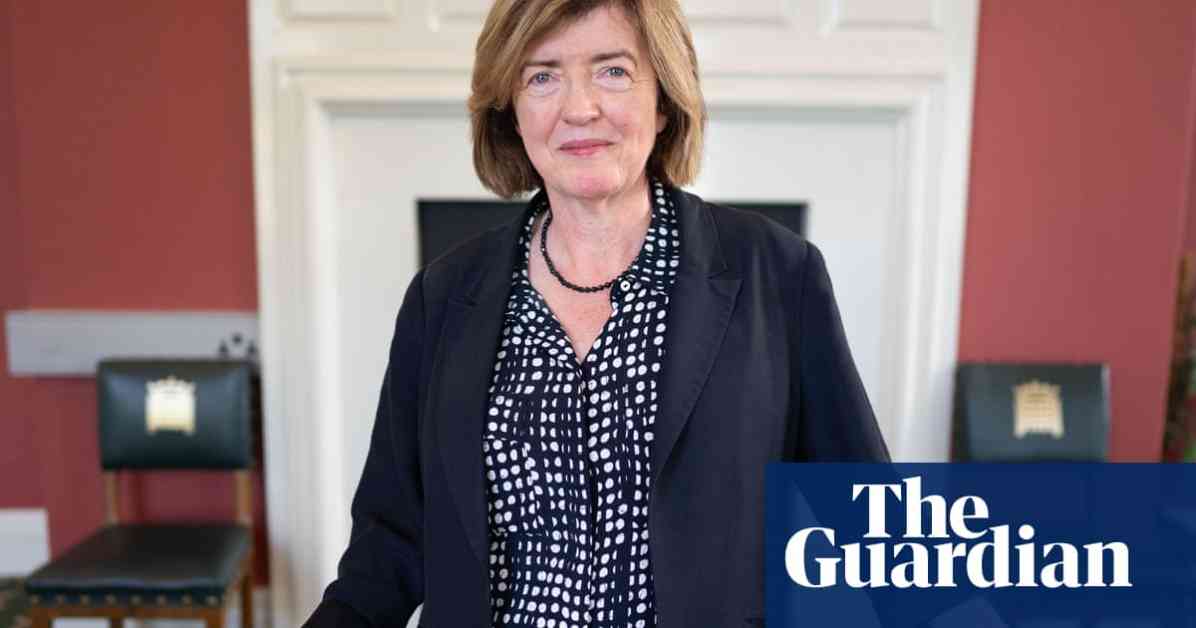Sue Gray’s £170K Salary Sparks Outrage Among Labour Advisors
Sue Gray’s appointment as Keir Starmer’s chief of staff has sparked controversy within the Labour Party due to her hefty salary of £170,000. This figure surpasses that of the Prime Minister, Boris Johnson, causing dismay among Labour colleagues who have accepted lower pay since entering government. Gray’s pay rise following the election has not gone unnoticed, especially by other political special advisers who have experienced reductions in their salaries compared to their previous roles within the Labour party.
The BBC reported that Gray’s salary exceeded Starmer’s own salary of £166,786 by £3,000, raising eyebrows and questions within the party. There were suggestions that Gray could have opted for a lower salary to avoid the negative publicity, but she declined the proposal. However, government sources have refuted claims that Gray had any involvement in determining her own pay, stating that she was informed of her salary after the decision had been made.
The revelation of Gray’s salary has sparked a wave of discontent among Labour advisors, many of whom attribute their constrained pay and conditions to Gray’s influence. Several advisors have expressed frustration over the imposed three-month probation periods and believe that Gray’s management style has led to disparities in pay between Labour and Conservative-era aides. The discontent among advisors has even resulted in some of them unionizing in response to the perceived unfair treatment.
The news of Gray’s salary increase has not only stirred anger among Labour advisors but has also provided ammunition for the Conservatives to criticize the opposition. Tory leadership contender Robert Jenrick seized the opportunity to highlight the disparity in pay between Gray and pensioners facing cuts, accusing Starmer of hypocrisy. The juxtaposition of Gray’s substantial pay rise with potential cuts for vulnerable pensioners has exacerbated the public outcry and fueled further debate on the issue.
Gray’s salary of £170,000 sets a new precedent as the highest ever for a special adviser, surpassing the pay of her predecessor in Rishi Sunak’s office, Liam Booth-Smith. Gray transitioned to her role with Starmer from the civil service, where her salary band was between £150,000-£155,000. The prime minister’s approval of a rebanding of special advisers’ salaries shortly after taking office has raised questions about the decision-making process behind the significant pay increase for Gray.
The controversy surrounding Gray’s salary has prompted scrutiny of the approval process for senior special adviser pay bands within No 10. Reports suggest that a Whitehall committee responsible for special adviser pay and terms, attended by Gray and No 10’s director of political strategy, Morgan McSweeney, played a role in setting the new salary bands. The lack of transparency in the decision-making process has raised concerns about accountability and fairness in determining special advisers’ salaries.
While the government has refrained from commenting on individual pay, a Cabinet Office spokesperson clarified that political appointees do not have the authority to set their own pay bands or determine their salaries. The spokesperson reiterated that decisions regarding special adviser pay are made by officials and not political appointees, emphasizing the separation of duties and responsibilities within the government.
The tensions within No 10 between supporters of Gray and allies of McSweeney have further fueled speculation about internal conflicts and power struggles. Some senior Labour sources have criticized Gray for allegedly impeding access to the prime minister and slowing down decision-making processes by centralizing authority under her leadership. These claims have added another layer of complexity to the ongoing controversy surrounding Gray’s salary and management style.
Despite the controversies and criticisms surrounding Gray’s salary, Starmer has chosen to refrain from publicly addressing the issue directly. In a recent statement, Starmer downplayed the reports about Gray, emphasizing his commitment to maintaining confidentiality regarding individual staff members. While acknowledging the inaccuracies in some of the stories circulating, Starmer has maintained a stance of discretion and professionalism in handling the fallout from Gray’s salary revelation.
In conclusion, Sue Gray’s £170,000 salary as Keir Starmer’s chief of staff has ignited a firestorm of outrage and discontent among Labour advisors and party members. The disparity in pay between Gray and other political special advisers, coupled with concerns about her management style and influence on pay and conditions within the party, has exposed underlying tensions and divisions. The controversy surrounding Gray’s salary raises broader questions about transparency, accountability, and fairness in determining special advisers’ pay, prompting a reevaluation of the decision-making processes within the government. As the debate continues to unfold, the repercussions of Gray’s salary revelation are likely to reverberate throughout the political landscape, shaping perceptions of leadership, integrity, and equity within the Labour Party.












